Amazon Fire TV Stick 4K Max vs Google Chromecast with Google TV: which is better?
4K streamers go head-to-head
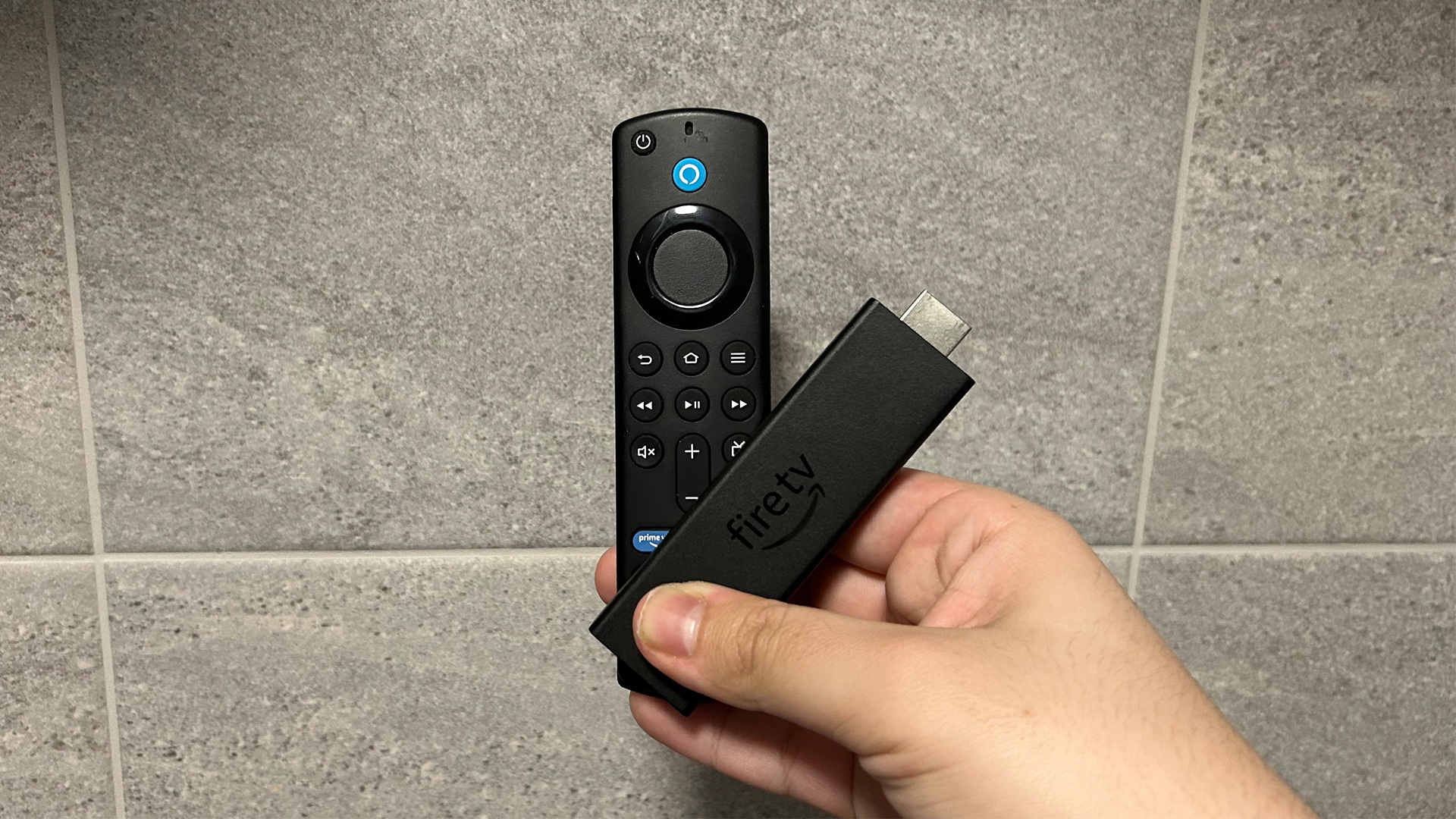
Resolution Up to 4K, 60fps
Bluetooth: Yes
Wi-Fi Wi-Fi 6
HDR formats HLG, HDR10, HDR10+, Dolby Vision
Dolby Atmos Yes
Dimensions (hwd) 9.9 x 3 x 1.4cm
Weight 48g
Amazon's Fire TV Stick 4K Max offers impressive app compatibility and a sharp punchy picture, however, its middling sound quality is a bit of a letdown. That being said, it's still a commendable streaming stick in a crowded market.
For
- Good image detail
- Supports all HDR formats
- Competitive pricing
Against
- Not the cleanest, clearest picture
- Sound lacks dynamism
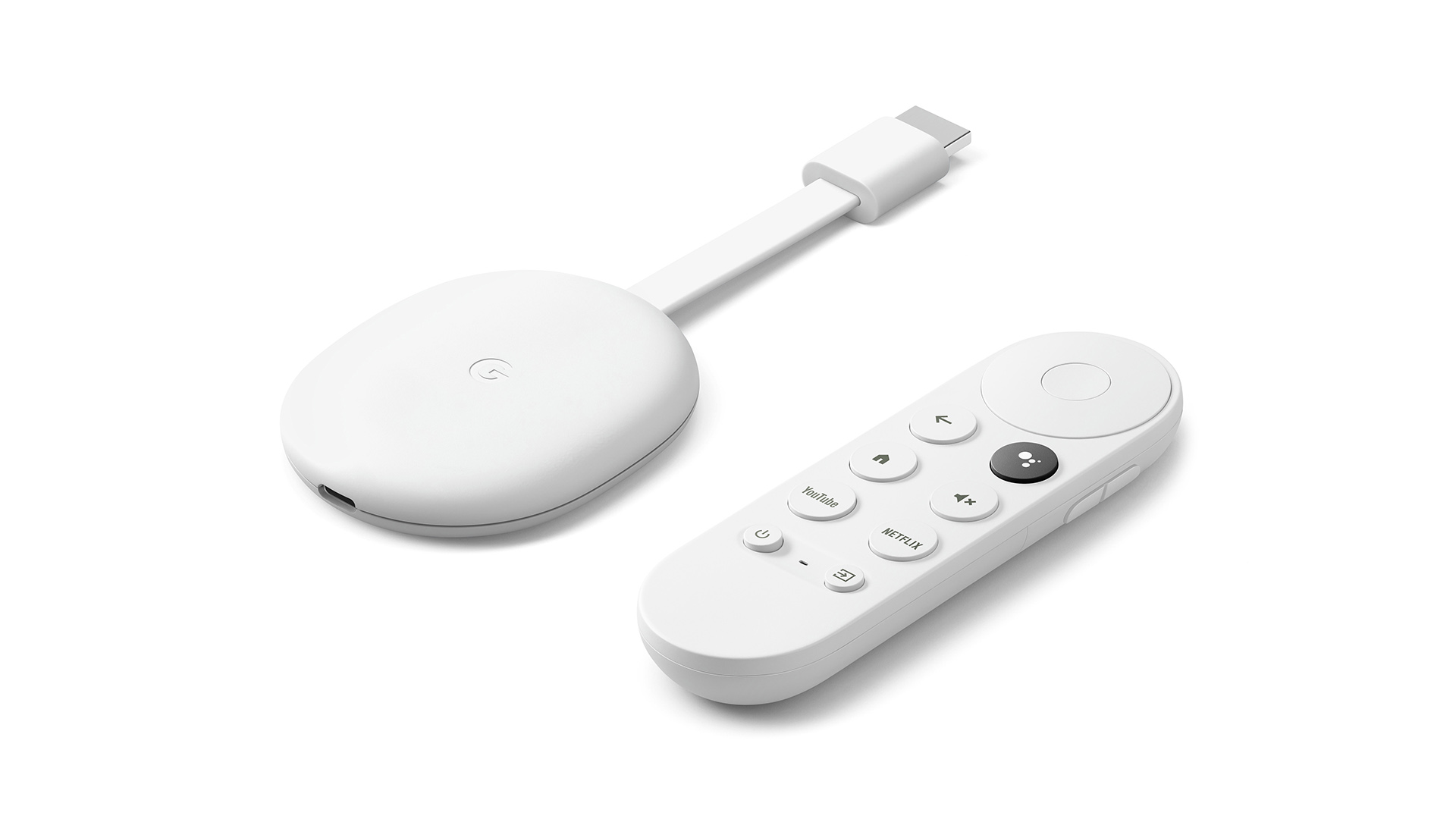
Resolution Up to 4K, 60fps
Bluetooth: Yes
Wi-Fi Wi-Fi 802.11ac
HDR formats Dolby Vision, HDR10, HDR10+
Dolby Atmos Yes
Dimensions (hwd) 12.5 x 6 x 16cm
Weight 55g
The Google Chromecast with Google TV is an all-round top performer, with its subtle and considered approach to the picture and sound alike, as well as a smooth and feature-packed software experience via Google TV.
For
- Lots of apps
- Excellent HDR picture
- Dolby Vision and Atmos
Against
- Rivals sound more dynamic
Want to make your dumb TV smart? Or perhaps your TV's built-in streaming apps just aren't cutting it. Either way, you'll need a streaming device and these are the two main players when it comes to mainstream 4K players.
In the Amazon corner, we have the Fire TV Stick 4K Max, and as the overly long product name may suggest, it's Amazon's top-of-the-range streaming stick. Sitting just below the Fire TV Cube, this much smaller and slimmer cuboid streaming stick is the latest addition to the Fire TV Stick lineup with 4K HDR streaming, beefier internal specs and Wi-Fi 6 support.
And in the Google corner, we have the Chromecast with Google TV, a plucky puck that also represents Google's finest when it comes to TV streaming. It too is capable of 4K HDR streaming and it's powered by Google TV, an operating system you'll find on many TVs from Sony and TCL. This Google streamer sits above the HD model that was released last year, and Google's two-streamer approach is a lot simpler than Amazon's current lineup of four sticks and one cube.
But which one is right for you? Well, there are many factors to consider, such as compatibility with your TV (there's no point buying a 4K streamer if you don't have a 4K TV, check out the Fire TV Stick 3rd Generation instead), app compatibility, ease of use and of course, picture and sound performance. Lucky for you, we have compiled all of that right here, with a head-to-head comparison between these two streaming sticks.
Price
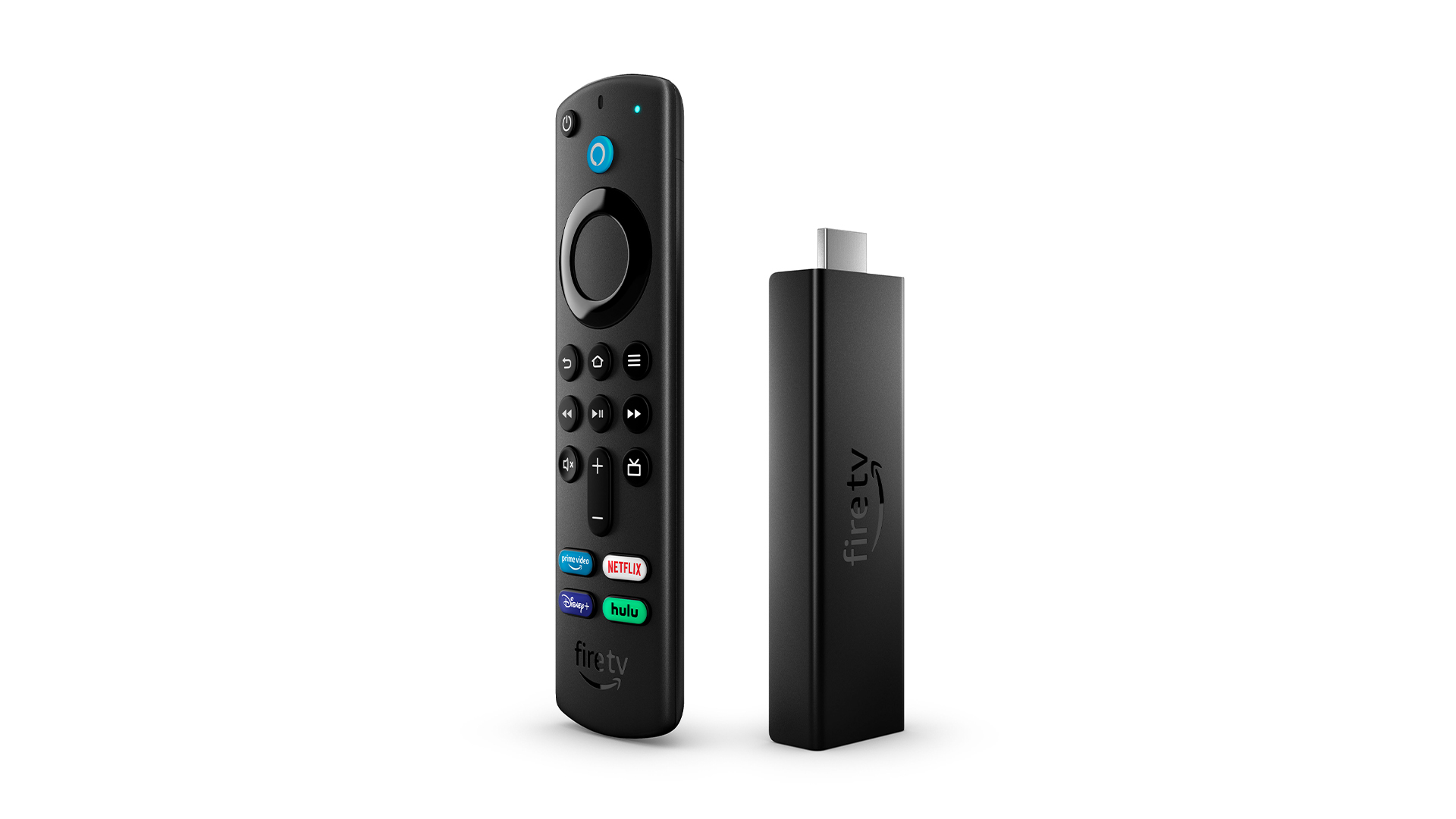
Amazon has the slightly pricier streamer out of the two, with the Stick 4K Max retailing for £65 / $55 / AU$99, whereas the Chromecast costs £60 / $50 / AU$99. There's not much in it, but if you're holding onto an older TV with the hopes of smartening it up instead of shelling out for a replacement, it's likely that every penny counts.
That being said, Amazon often has sales occurring in which pretty much all of its first-party tech products have their prices slashed. Right now in the Amazon Spring Sale, you can pick up a Fire TV Stick 4K Max for just £48. However, it looks like Google anticipated this as it currently has savings on its Chromecast devices and you can get the Google TV-equipped streamer for just £45.
While the price difference is pretty negligible, especially during sales, we have to give it to the Chromecast, as it is the cheaper option.
**Winner** Google Chromecast with Google TV
Design
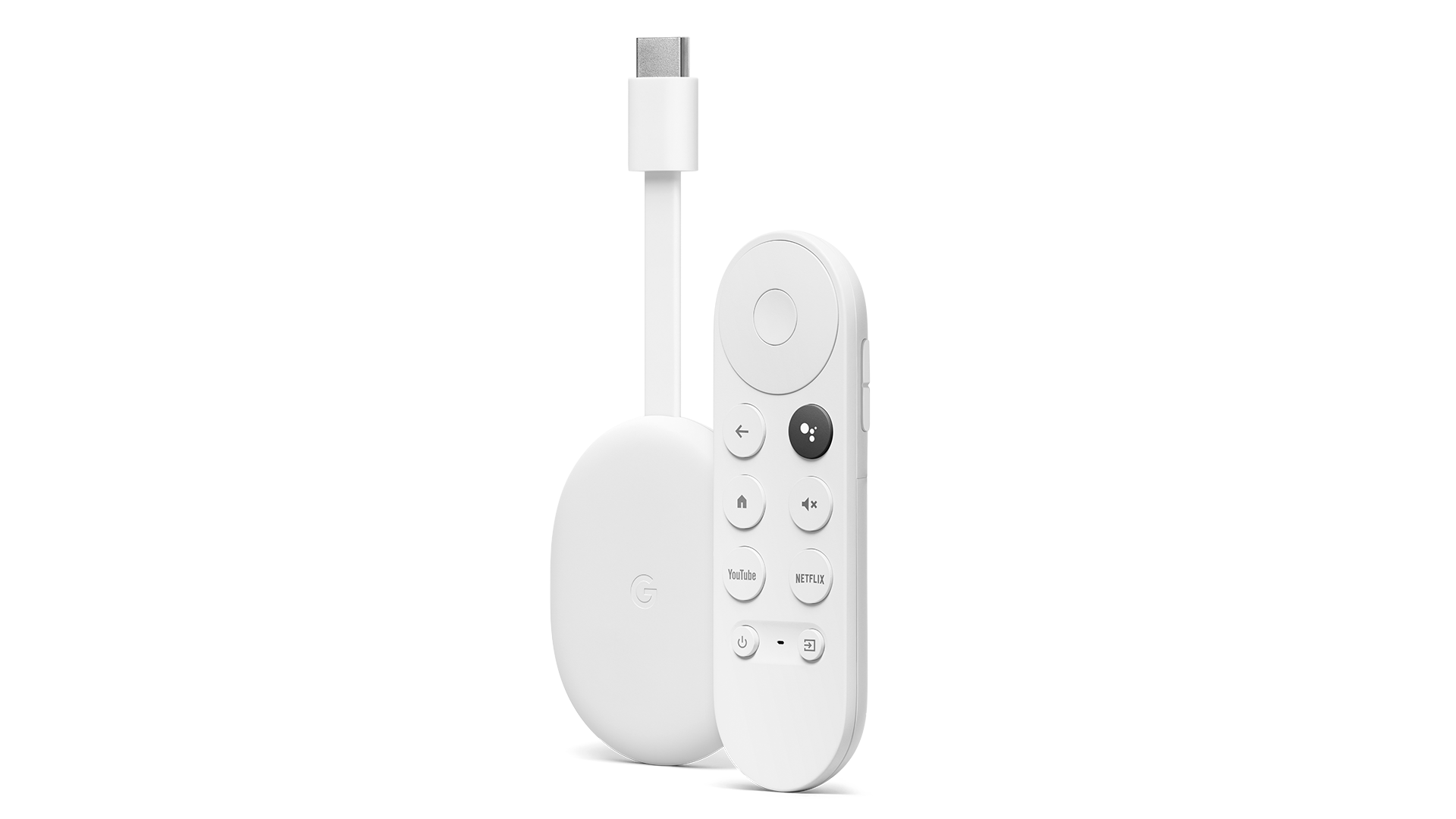
Neither streaming device features a particularly alluring design, but that's okay considering they'll be hidden behind your TV during use. Starting with the Fire TV Stick, Amazon is keeping its tried and true design format that it's used since the first generation Fire TV Stick launched in 2014.
It's a black plastic cuboid that resembles an enlarged USB thumb drive, with an HDMI connector sticking out of one end. It also features a micro USB connection, which in 2023 is nothing short of irritating, as practically everything has converted to USB-C by now.
The boxy black design is pleasingly lowkey overall, with a stealthy design that is fairly unobstructive when it's lodged into your TV's HDMI socket. That being said, it did encroach onto its neighbouring HDMI connectors when we tested it with the Sony A80K, however your experience may differ depending on what TV you plan on hooking it up to. Thankfully Amazon does include an HDMI extender in the box if you do find this to be an issue, or if you need your Fire TV stick to stretch a little closer to the nearest plug socket.
One benefit of the Fire TV stick is that it technically can run off your TV's USB for power, however, you do receive an on-screen message suggesting that you use the included power adapter for the best performance. This isn't the case for the Chromecast, which instead firmly informs you that it will not work over the TV's USB power and instead demands you plug it straight into the wall.
Speaking of the Chromecast, it features a much more aesthetically pleasing design. First of all, it comes in three different colours to choose from: Sky (a pastel blue shade), Sunrise (pink, but whatever you say Google) and Snow (white, obviously). It also has a rounded puck design with a flat HDMI cable stretching out the top end, and a USB-C connector on the bottom edge. This means no obstruction of other HDMI ports, and an easy switch out if you need to replace the cable, thanks Google!
The Chromecast also gets a colour-matched remote with directional buttons, volume controls, a Google Assistant button (and microphone), power, an input switching button and two pre-assigned app shortcut buttons for YouTube and Netflix. Overall the controller is fine; perhaps a tad small and fiddly for some, but that will be down to personal preference.
Amazon bundles in its Alexa Voice Remote, which it has been slowly refining over the years to include better functionality. It gets a couple more Amazon services-based shortcut buttons, as well as a Disney Plus shortcut button instead of YouTube. It's a bit chunkier and feels slightly more solid in the hand, compared to the Chromecast remote. Amazon also sells the Alexa Voice Remote Pro as an optional extra, which adds backlit buttons, two programmable shortcut buttons and a find my remote feature for when it inevitably slips between the couch cushions – but that is an additional £35 / $35 / AU$59 so we won't count it in this versus.
Overall, our vote goes to the Chromecast thanks to its USB-C connection, less obstructive design and greater selection of colours.
**Winner** Google Chromecast with Google TV
Apps and software
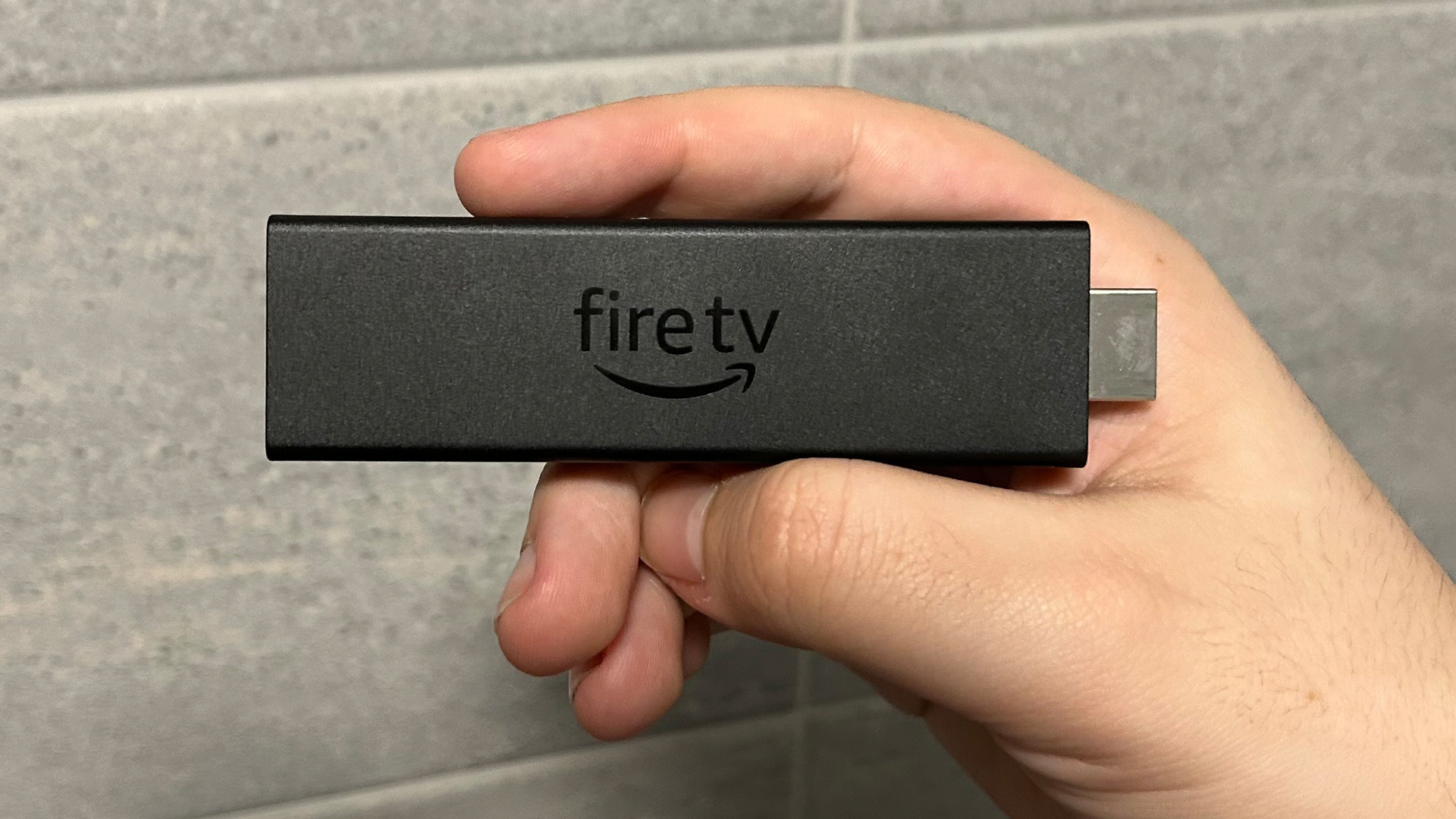
This is the make-or-break section for both streamers, as the whole point of sticking one of these in your TV is so you can enhance it with smart functionality. Thankfully, both the Fire and Chromecast offer a varied selection of streaming apps, although each has its unique set of oddities and caveats too.
Starting with the Fire Stick; it should come as no surprise that the 4K Max is particularly Amazon-centric. On the home screen, you'll see Prime Video and Amazon Music featured heavily, with suggestions and new releases featuring prominently. However, once you get through the Prime pickings, you'll get onto the other familiar streaming apps, such as Netflix, Disney Plus, Apple TV and Paramount+. If you're in the UK you'll also find BBC iPlayer, ITV X, All 4, My 5 and Now. Music streaming is equally well equipped with Amazon Music, Spotify, Tidal and Deezer all present.
While app compatibility is solid, it's not perfect, as there are some notable oddities within some apps. Google Play Movies is nowhere to be found, which can be frustrating for those with a pre-established library of movies; thankfully there is a workaround using the YouTube app which allows you to watch your purchased movies and TV shows there. The Apple TV experience is also compromised, as you can't purchase any content on the app itself, and instead need to purchase and load content into your library via another device. That being said we can't really knock the app selection as it does really cover all bases.
The same can be said about the Fire OS software experience, as while it's not perfect, it's perfectly usable and intuitive overall. Despite the aforementioned heavy Amazon content pushing, the user interface is responsive, and easy to navigate and even the Alexa integration for searching for content works nicely. There's still the occasional misheard command, but Alexa usually gets it right.
Most of the above can be said for the Chromecast, although there are some differences when it comes to what isn't supported. Google Play is here, but Amazon Music, Twitch and All 4 are not. Thankfully, since our last Fire TV Stick vs Chromecast article, app compatibility has improved on the Chromecast with a Now TV app and Britbox support too. The Chromecast does have a trick up its sleeve to circumnavigate missing apps, and that's the ability to cast from your phone or tablet onto the Chromecast, meaning if there's something you can't find on the streamer, you can likely find it elsewhere and mirror your device onto the TV.
The Google TV software experience is also arguably better too, with a snappier and less ad-heavy focus. Instead, it offers more personalised content suggestions across various streaming platforms, instead of what's new on Prime Video. The Google Assistant is also a useful asset in navigating through the user interface, as you can ask it to play specific content or open apps for general browsing.
At the end of the day, both streamers offer plenty in the way of apps and useful software, so it's down to personal preference as to which suits you best.
**Winner** Draw
Performance

Both streamers offer similar picture and audio performances and the likelihood is you'll be happy with either in isolation. However, we have tested them side by side and can definitively say that one is better than the other.
Both streamers offer 4K streaming with HDR supported in the HDR10, HDR10+, Dolby Vision and HLG formats. There are also auto frame matching options on both to help to minimise stutter, although it seems to be better implemented on the Fire Stick. Amazon has opted for a system-wide approach, while Google requires each developer to enable it within their respective streaming apps.
When it comes down to picture quality, both streamers feature impressive images with excellent detail and depth. The colours are strong and vibrant on both too, and both handle dark detail well.
So if that's the case how is one better than the other? Well, it's actually the Chromecast that takes it up a notch with slightly better clarity and a more thoughtful approach when it comes to finer details. In our review of the Fire TV Stick 4K Max, we used the latest murder mystery epic Glass Onion: A Knives Out Mystery which features a fairly prominent film grain throughout. On the Fire Stick, it appeared more like a visual filter and was a touch too harsh, whereas the Chromecast took a more nuanced approach to smoothly integrate it into the picture. This resulted in a cleaner and more intentional-looking effect, rather than unwanted picture noise.
Subtlety is also the Chromecast's strength when it comes to audio performance, as it offers a warmer, more natural and balanced approach to songs that the Fire (ironically) just can't match. The Amazon streamer sounds slightly robotic in nature when compared to the Google alternative, and it is also weaker when it comes to dynamics. Overall the Chromecast offers a more energetic and authentic approach to music, making it the more enjoyable pick overall.
As for movies and TV, both streaming sticks are pretty equally matched, with impressively immersive audio when it comes to Dolby Atmos content. Vocal clarity and sound effects are also similar across the two streamers, however, the more natural-sounding Chromecast takes the upper hand once again when it comes to dialogue.
**Winner** Google Chromecast with Google TV
Verdict
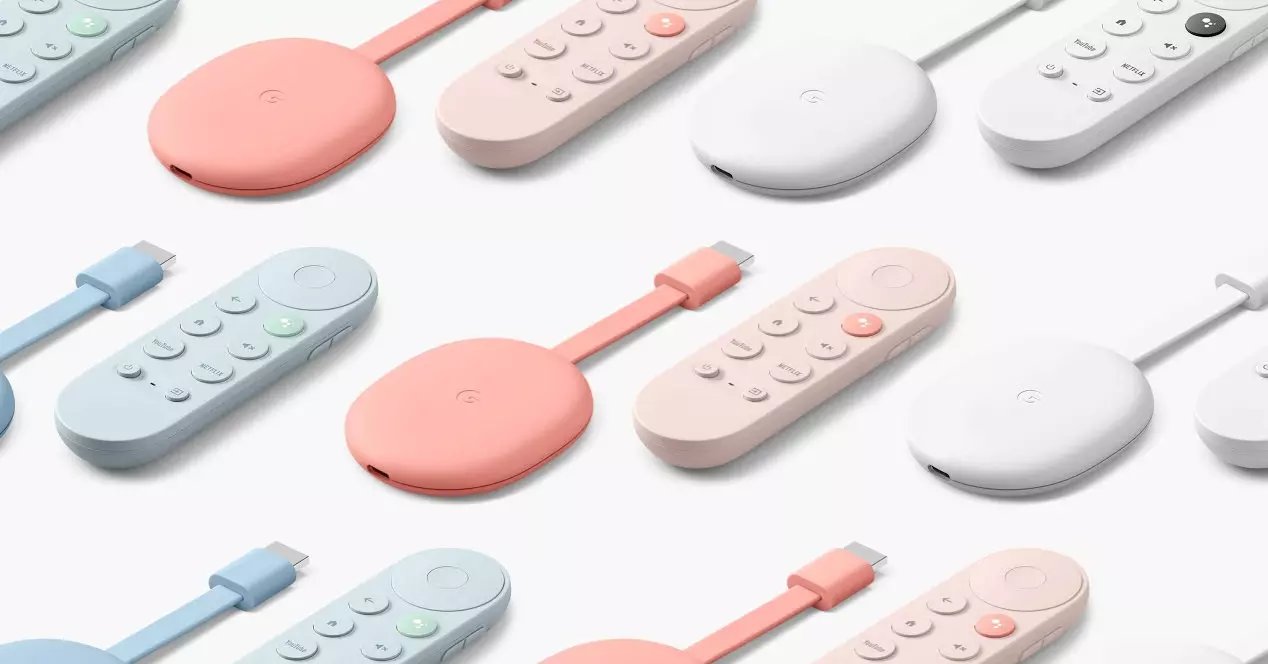
It should be obvious by now that we think the Google Chromecast with Google TV wins this battle of the streamers. It features a better design, it's cheaper, and it performs better, however, that doesn't entirely rule out the Amazon Fire TV Stick 4K Max.
Both streamers offer plenty in the way of smart functionality, app compatibility and so forth, and the truth is that you would likely be very happy with either. However, it's in the picture and sound subtleties that the Chromecast takes the win. The more natural and considered approach to the picture and sound struck a chord with us, which is probably why the Chromecast has sat firmly on our yearly Awards list for a couple of years now.
There are obviously other factors that may sway your decision, for example, if you have invested in the Amazon Prime catalogue to build up a large video library, or if you're deep into the Alexa smart home system, then the Fire TV Stick is probably the better choice for you.
However, if picture and sound are your main priorities, then the Google Chromecast with Google TV is the streaming puck that you should pick.
MORE:
Read our full review of the Amazon Fire TV Stick 4K Max
As well as our Google Chromecast with Google TV review
Check out our picks for the best media streamers
And finally the best TVs to accompany your new streaming stick
Get the What Hi-Fi? Newsletter
The latest hi-fi, home cinema and tech news, reviews, buying advice and deals, direct to your inbox.
Lewis Empson is a Senior Staff Writer on What Hi-Fi?. He was previously Gaming and Digital editor for Cardiff University's 'Quench Magazine', Lewis graduated in 2021 and has since worked on a selection of lifestyle magazines and regional newspapers. Outside of work, he enjoys gaming, gigs and regular cinema trips.
